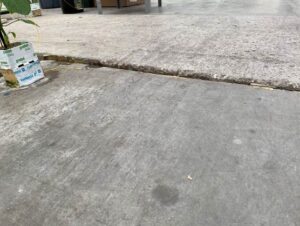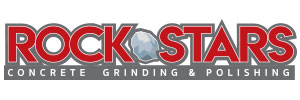FAQ
Want to know more about us?
In this section you will find answers to the most asked questions by our clients. In case you have any other questions, please feel free to call us at 604-245-0994 or use the form on our contact page. We look forward to hearing from you!
Why did my concrete driveway crack?
“It’s not a matter of if concrete will crack it’s a matter of when”
Concrete driveways sometimes have what’s called controlled joints. These joints or seams are put into the concrete while it’s still wet so that as the concrete dries and cures, hoping it will crack in those joints and not through the field. Unfortunately, there is really no way to 100% ensure a concrete driveway will not crack in other areas. Concrete driveway cracks can happen anywhere at any time.
When cracks happen, whether it’s in the control joint or other areas things can go bad fast. Depending on your climate if water penetrates the cracks then freezes and expands the crack will become worse. Poorly packed base under the concrete can be a cause as well. Concrete cracks can also be caused by growing tree roots, impact damage, weight overloading and ground settling.

What do I do if my driveway starts to crack?
Cracks will need to be sealed to prevent further damage which is part of the ongoing maintenance of a concrete driveway. Concrete repair contractors will provide crack sealing as part of a service package that includes sealing. You may be tempted to head down to your local hardware or big box store and purchase some sort of patching product. This generally will not work and will cost you more in the long run as the cracks will continue.
If your driveway is 2-6 weeks old and you see excessive amount of cracks there are other issues to be concerned about. The concrete more than likely was not installed properly. You might want to call your contractor or whoever installed the driveway and have them deal with the issue.
How is a driveway properly fixed?
A good contractor with use high quality commercial grade products. Control joints should be filled with a flexible Polyurea compound before they start cracking. Filling these joints will ensure water has a much harder time finding its way below the concrete surface. Other cracks are generally filled with a Urethane products that cures hard and penetrates deep into the crack, also keeping water out. If these issues are dealt with early the cost can be minimal but left too long, larger and longer cracks can be more difficult and costly to repair.
Do I need to fix my concrete driveway?
The primary purpose of fixing concrete cracks is to help keep moisture from working its way into the cracks. An additional benefit of fixing concrete cracks is improving the appearance of your driveway.Curb appeal is important to many people for a variety of reasons from just wanting the home to look good to having a home look it’s best for resale.
What can I do to prevent my concrete from cracking?
It is inevitable that concrete will crack at some point but there are some things you can do to minimize the chances. If you have a driveway with control joints and no stress cracks, applying an industrial flexible compound will greatly reduce water penetration. Not allowing water into these joints helps reduce soil erosion under the slab and the chances that water will freeze and start cracking your concrete. If you have minor cracking take care of the issue now before those cracks grow and let more water penetrate the concrete. Have them filled with an industrial concrete binding filler. A third option is to apply a commercial penetrating sealer. This sealer will settle below the surface and will stop water from entering the concrete. This helps concrete stay in better shape by reducing the chances of erosion.
What is an Epoxy?
There are different types/qualities of Epoxy Coatings. A high quality Epoxy consists of two parts (one part resin and one part hardener). In addition a high solid content is required for an Epoxy Coating to last and stand up to the elements and high traffic, including vehicle tire wear. When properly catalyzed and applied, epoxies produce a hard, chemical and solvent resistant finish. Retail roll on Epoxy Coatings generally are a paint like product that will not hold up to the elements. This type of coating is considered commercial and should only be installed once a concrete floor has been fully prepared by using a commercial concrete grinder to roughen the surface to ensure a long lasting bond.
What is a Chip Floor?
Polyaspartic coatings – (often used with coloured chips) are very tough, flexible and resistant to UV light, oil, salt, and won’t crack or peel with temperature change. A chip floor is great for areas where impact and scratch resistance are required. As with Epoxy, Polyaspartics are two part systems meant to be used to cover concrete where long life and resistance to vehicle tire wear is required. This type of coating is considered commercial and should only be installed once a concrete floor has been fully prepared by using a commercial concrete grinder to roughen the surface to ensure a long lasting bond.
What does grinding and polishing my concrete look like?
Concrete Grinding & Polishing has become a very popular finish for concrete floors and counter tops. There are several types of finishes within the polishing and grinding process. All concrete has a relatively smooth top layer that can simply be polished. In addition to that the top layer can be ground to a point where a small amount of the stone (aggregate is showing). This is called Salt and Pepper). Grinding more aggressively and exposing larger aggregate (known as Exposed Aggregate). Once the grinding process is completed a clear coat can be applied or simply polished and left with a natural shine.
